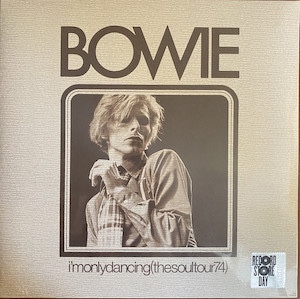Genres without Borders
By Sera mathews
Music as a universal language has transcended beyond borders. This piece focuses on Morna, Cretan, Raï, and House music which have originated from specific cities around the globe. Find out more here in Genres without Borders.
Music knows no barriers and speaks an international language of love infused with the art of storytelling but it is vital to know where it comes from and why. The four musical styles have a very special origin – they come from cities.
Morna music – Cape Verde
The soothing voice of Cesária Évora singing Morna rang through the speakers around a tiny café in Mindelo, the hometown of the prominent singer.
Morna is regarded as the national music of the African island country Cape Verde just as the rumba is for the Cubans, the tango for the Argentines, and the fado for the Portuguese.
Emerging in the 18th century, this evocative traditional genre – a marriage of music, voice, poetry, and dance – was included in UNESCO’s Intangible Cultural Heritage List in December 2019.
It is usually sung and expressed by one singer to denote feelings of love, hatred, longing, and suffering.
Regarded as the Queen of Morna, Évora placed the Cape Verde archipelago on the map with her acapella ballads fused with notes of harmony and melancholy when she won a Grammy Award for her 2004 album, Voz d’Amor.
Sung mostly in the Creole language (a mix of African, Brazilian, Cuban, and Portuguese), Morna and other Cape Verdean music have become genres without borders having found its way into France, Netherlands, New England in the US, West Africa, and a few parts of Latin America.
Cretan music – Crete, Greece
Like most Grecian music, the island of Crete produced Cretan music influenced by the tones of the Byzantine Empire and a blend of inspirations from the East and the West.
Cretan Mantinada (singular of mantinades) are the day-to-day folk songs that are sung across the island. Sung in the Cretan dialect, these pieces are short – a 15-syllable rhyming couplet.
Composed to exhibit an array of emotions ranging from joy to hope to sorrow to revenge, most mantinades are told at festivals accompanied by the Cretan lyra ( a three-stringed bow-shaped musical instrument crucial to the traditional music scene of Crete) or shared among each other in a company. Most are not even jotted down on paper, many told and forgotten, but the most memorable are memorised and passed across generations verbally.
Raï music – Oran, Algeria
In the 1920s in the coastal city of Oran in northwest Algeria, rose singers of Raï (translated as “opinion”) music also called cheb. Mainly sung amongst the poorer demographic, these pop songs focus on social issues faced like disease and policing of colonies harming natives.
Raï singers are referred to as Cheb (male) and Cheba (female) denoting youth. With blunt lyrics on ardour, lust and powerlessness, lyrics are sung in either Arabic or French.
By the 1980s, despite restricted broadcasting on the radio, Raï exploded as a universal music genre. Many female singers, like Cheba Zahouania, arose during this period to oppose the previously male-dominated scene.
In resonance with the genre’s globalised uprising, it began to assimilate with Egyptian and Moroccan cha’abi influences and features of reggae and funk styles to become a genre without border.
House – Chicago, USA
It was at The Warehouse that house music has been highly credited from originating. This Chicago-based venue and Music Box have driven the iconic sounds of hard machine beats and strong melodic riffs derived from the soul of its predecessor, disco.
DJs like Ron Hardy and Frankie Knuckles amalgamated distinctive sounds and championed a new trend.
Since its commencement, house has travelled around the globe and been made headway into various forms: the more upbeat and song-focused funky house, the fast and furious hard house, to techno house and more and have surged in the case of genres without borders.
Chart-topping artists like Disclosure drew attention for its mainstream achievements, but nowadays the heart and soul of modern house music lies among a network of independent artists of all ages from the late Avicii (progressive house) to Kygo (deep, progressive, and tropical house) to Cathy Dennis.
Check Out…
‘Topowa! Never Give Up’ is a documentary narrating the heartwarming endeavour of 12 young musicians from Katwe, Uganda on their road to London and the Cheltenham Festival.
Celebrating the magnitude of music to change lives through a voyage of hope and resilience, Topowa is nominated for Best Music Documentary at the Raindance Film Festival.
Directed by Philip Sansom and Inigo Gllmore, the feature film will have its UK premiere on 28 October 2020.
For more riveting pieces, read First Dance on the Royal Ballet’s Annual Emerging Dancer 2020.
Credit: Image by Jukka Aalho



